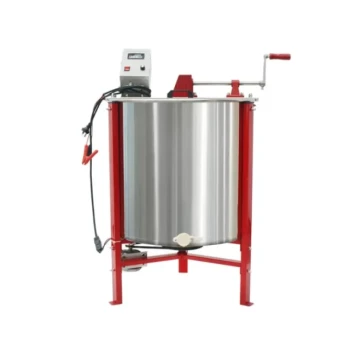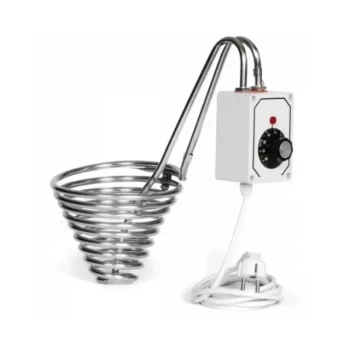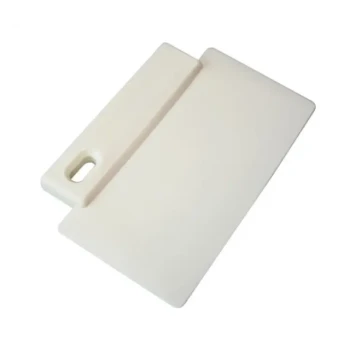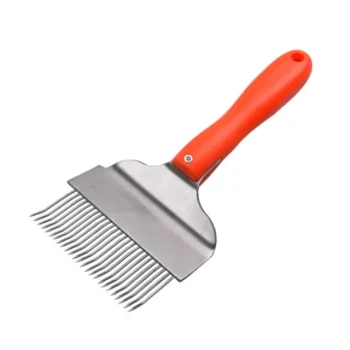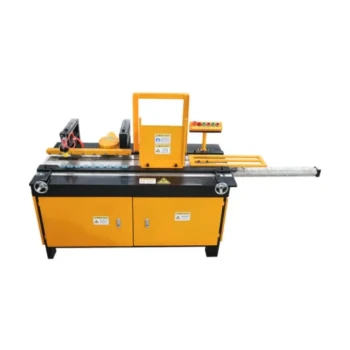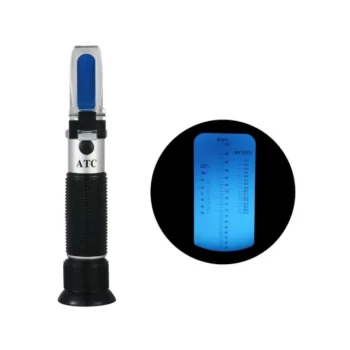At its core, using a honey extractor is a mechanical process that leverages centrifugal force. You begin by uncapping the wax-sealed honeycomb frames, placing them inside the extractor's baskets, and then spinning the device. This spinning action forces the honey out of the comb, where it collects at the bottom of the drum to be drained.
The true purpose of an extractor isn't just to get honey out; it's to get honey out while preserving the delicate wax comb. This saves your bees an immense amount of energy and resources, allowing them to refill the preserved comb instead of having to rebuild it from scratch.
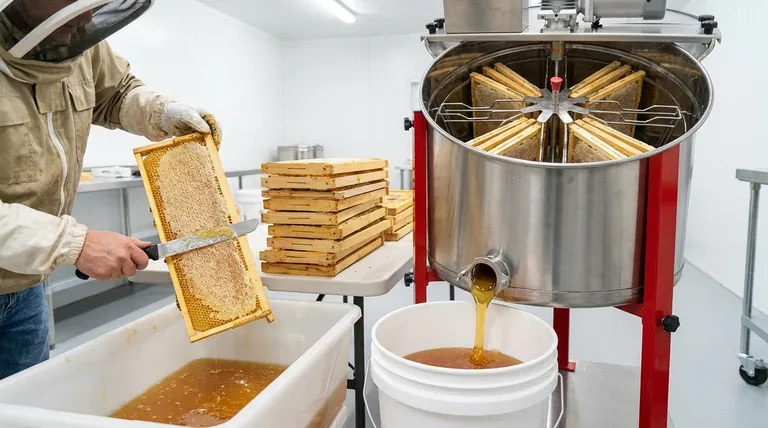
The Extraction Process: A Step-by-Step Breakdown
Successfully extracting honey is a systematic process. Following these steps ensures a clean harvest and protects the integrity of your equipment and your honeycomb.
Step 1: Select and Remove Frames
Before you even touch the extractor, you must select the right frames from the hive. You are looking for frames where the bees have filled the cells with honey and capped them with a layer of fresh beeswax. This capping indicates the honey has been dehydrated to the proper moisture content and is ready for storage.
Step 2: Uncap the Comb
The wax cappings create a seal that must be removed. Using a specialized tool like a heated knife or an uncapping fork, carefully slice or scrape off this top layer of wax. Work over a container to catch the wax cappings, which are valuable and can be rendered for other uses.
Step 3: Load the Extractor
Place your uncapped frames vertically into the baskets or racks inside the extractor. The most critical rule here is to ensure the load is balanced. Place frames of similar weight directly opposite each other, just as you would balance a load of laundry in a washing machine.
Step 4: Spin and Extract
Begin spinning the extractor. If using a manual crank, start slowly and gradually build up speed. If using an electric model, use the lowest setting first. This initial slow spin removes some of the honey's weight and prevents the delicate comb from "blowing out" under its own weight from the intense force.
Step 5: Collect the Honey
As the honey is flung from the comb, it will run down the interior walls of the extractor drum and pool at the bottom. Open the honey gate or spigot at the bottom to drain the raw honey through a filter or strainer and into a food-grade bucket or container.
Key Considerations and Equipment Nuances
Not all extractors or frames are created equal. Understanding the differences is key to a smooth and successful operation.
Radial vs. Tangential Extractors
There are two primary types of extractors. Radial extractors position the frames like spokes on a wheel, allowing honey to be extracted from both sides simultaneously. They are highly efficient and are standard for larger operations.
Tangential extractors hold the frames with one side of the comb facing outward. You must spin the frames, stop, flip them around, and then spin again to extract honey from the second side. These are common for smaller, hobbyist setups.
The Importance of Frame Integrity
Honey extractors exert powerful forces. Only use frames that have internal support, such as wired or plastic foundation. Attempting to extract from foundationless frames will almost certainly result in the comb breaking apart inside the extractor, creating a significant mess and destroying the comb you intended to preserve.
Manual vs. Electric Models
A manual, hand-crank extractor is a cost-effective and simple option for beekeepers with only a few hives. For commercial beekeepers or those with a large number of hives, an electric extractor is a necessary investment. It dramatically increases efficiency, boosts honey yield, and reduces physical labor.
Understanding the Trade-offs and Best Practices
Avoiding common pitfalls is just as important as knowing the steps. These practices protect your bees, your honey, and your equipment.
The Risk of an Unbalanced Load
An imbalanced extractor will wobble violently as it spins up. This can not only damage the extractor's bearings and internal mechanisms but can also be a safety hazard. Always take the extra moment to balance your loads.
The Necessity of Post-Extraction Cleanup
Honey is sticky and will attract pests. More importantly, leftover honey and wax can harbor bee diseases. Thoroughly cleaning your extractor after use with water and a soft cloth or spatula is not optional. It is a critical sanitation step to prevent the spread of disease between your hives.
Returning the Frames to the Hive
Once the frames are extracted, they are known as "stickies" because they still have a light residue of honey. Returning these frames to the hive allows the bees to clean them up completely and immediately begin the process of refilling them.
Making the Right Choice for Your Goal
Your approach to extraction depends on the scale of your operation and your ultimate objective.
- If your primary focus is a small-scale hobby: A manual tangential extractor is a perfectly suitable and economical choice for a handful of hives.
- If your primary focus is efficiency and volume: An electric radial extractor is the professional standard and a wise investment for maximizing your harvest with minimal time.
- If your primary focus is hive health and sustainability: The core benefit of any extractor is the ability to return undamaged comb to the bees, which is the most significant factor in promoting a productive and healthy colony.
Ultimately, mastering the use of a honey extractor is a key milestone that transforms beekeeping from a simple hobby into a sustainable and rewarding practice.
Summary Table:
| Step | Key Action | Purpose |
|---|---|---|
| 1 | Select & Remove Frames | Identify honey-filled, capped frames ready for harvest. |
| 2 | Uncap the Comb | Remove wax seals using a heated knife or uncapping fork. |
| 3 | Load the Extractor | Place uncapped frames in a balanced configuration. |
| 4 | Spin & Extract | Use centrifugal force to fling honey from the comb. |
| 5 | Collect the Honey | Drain honey through a filter via the extractor's honey gate. |
Ready to Scale Your Honey Harvesting?
For commercial apiaries and beekeeping equipment distributors, efficient extraction is key to profitability and hive health. HONESTBEE supplies durable, high-capacity honey extractors—including electric radial models for large-scale operations—alongside uncapping tools, filters, and other essential harvest equipment. Let us help you maximize yield and minimize labor.
Contact HONESTBEE today for wholesale pricing on professional-grade extraction systems.
Visual Guide
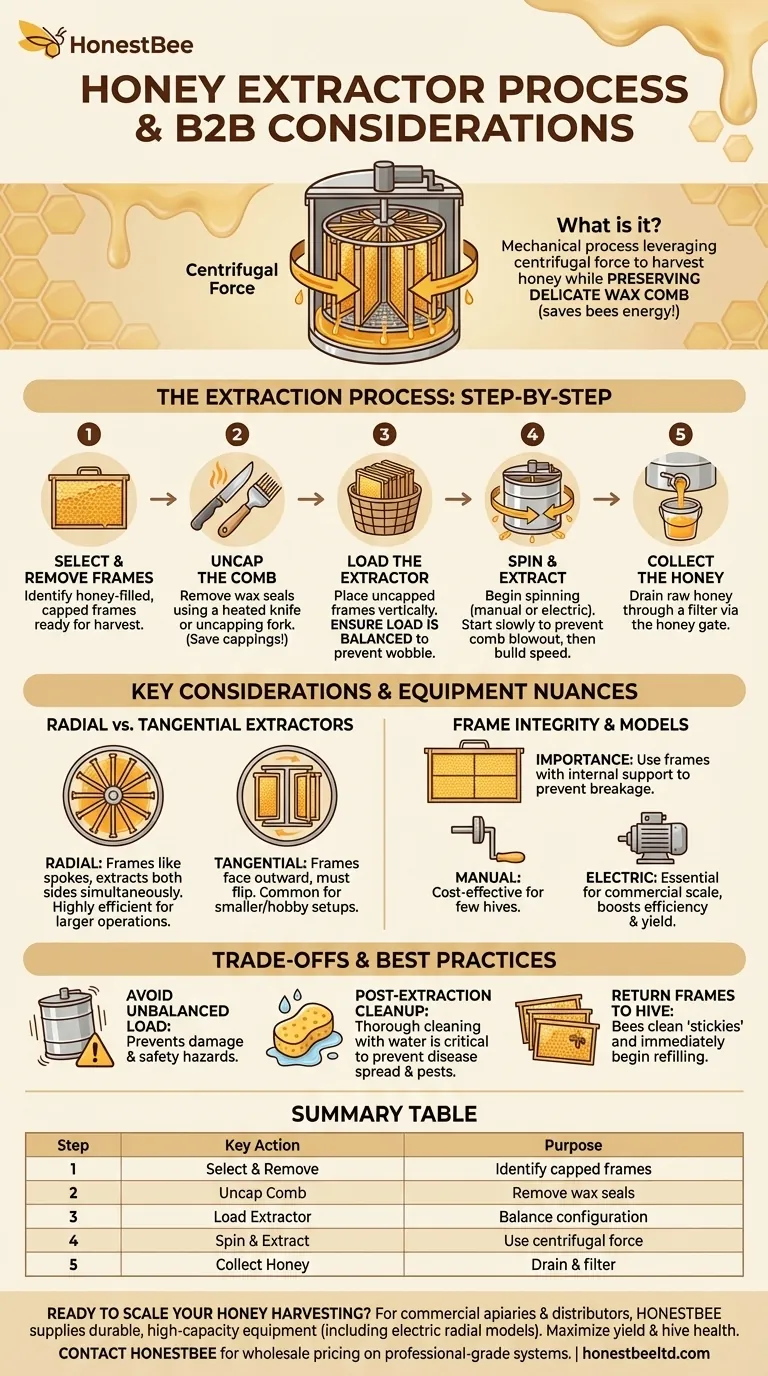
Related Products
- Electric 8 Frame Honey Spinner Extractor Equipment for Beekeeping
- HONESTBEE 3-Frame Manual Acrylic Honey Extractor
- 8-Frame Electric Self-Reversing Honey Extractor Spinner for Commercial Honey Extraction Equipment
- HONESTBEE 72 Frame Industrial Electric Honey Extractor for Beekeeping
- Stainless Steel 3 Frame Manual Honey Extractor Spinner for Bee Honey Extraction
People Also Ask
- What is the purpose of honey extractors? Maximize Harvest Efficiency & Preserve Honeycomb
- What is an extractor in beekeeping? Unlock Sustainable Honey Harvesting
- What should be considered when using a honey extractor to avoid damage? Ensure a Smooth, Efficient Harvest
- Why is cleaning a honey extractor important in beekeeping? Protect Your Honey Quality & Equipment
- What are the three basic types of honey extractors? Choose the Right Tool for Your Apiary










